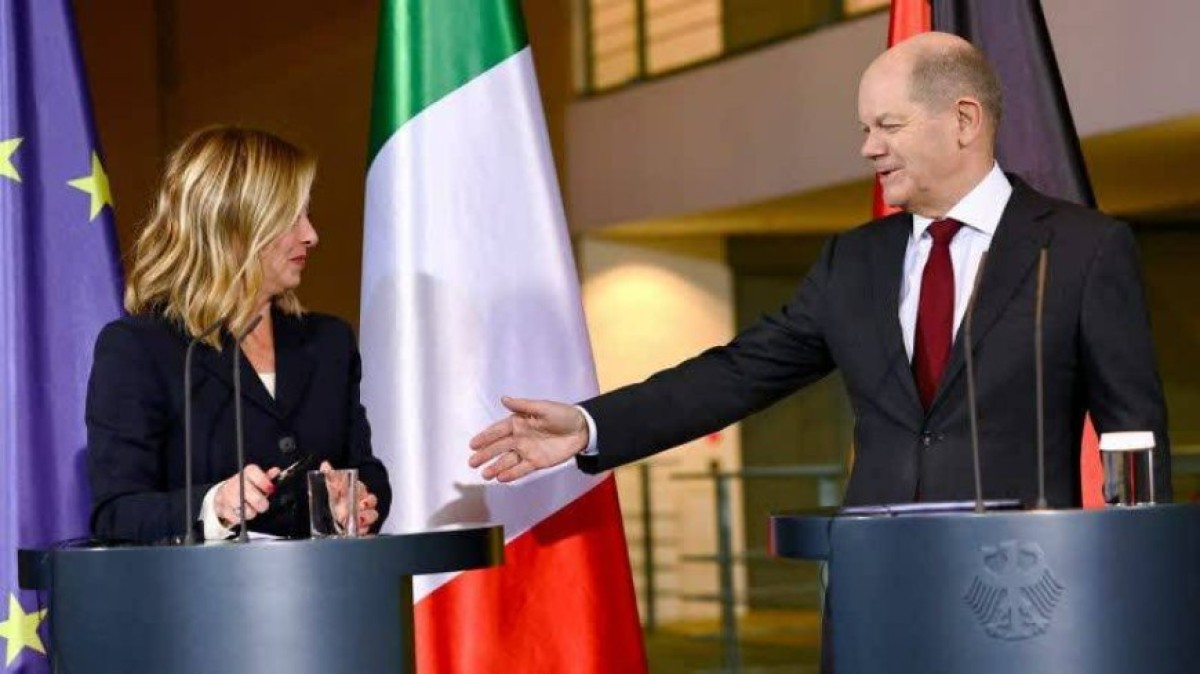 1799
1799
The Gas Game: Can Germany-Switzerland-Italy's Energy Alliance Be a Game-Changer?
The Gas Game: Can Germany-Switzerland-Italy's Energy Alliance Be a Game-Changer?
By: A. Mahdavi
During the past few days, speculations have arisen regarding the tripartite gas agreements involving Germany, Switzerland, and Italy, with approval granted by the German Minister of Energy. This agreement facilitates gas transit among the three nations, enabling mutual support in times of crisis or energy deficits, where gas can be transferred between members as needed. Essentially, this pact serves as a means to bolster energy security for the involved countries, albeit at an increased economic cost.
The solidarity mechanism embedded within this framework was previously employed by Germany in collaboration with Denmark and Austria and presented as a vital recourse during severe gas shortages. The German perspective advocates that through such multilateral cooperation, nations can better prepare for crises, fostering enhanced cooperation across European states. Under this new plan, Switzerland is slated to join the agreement, offering a conduit for gas transfer between Germany and Italy in times of supply disruptions, thereby hastening response times and ameliorating crisis conditions.
Germany's objectives within this accord are multifaceted. The nation aspires to heighten its engagement within the international political landscape and fortify its place in the global system by cultivating relationships with diverse nations. Switzerland, positioned as a non-EU European nation, presents a strategic avenue for Germany to enhance regional ties, positioning itself as a dependable partner through models of economic and strategic collaboration. This strategic alignment not only augments Germany's economic trajectory but also propels diversified economic partnerships.
Moreover, Germany endeavors to diversify its energy sources, recognizing the vulnerability stemming from a reliance on inexpensive gas, particularly in the post-Ukraine conflict. This energy security strategy, formulated within the solidarity mechanism, entails additional costs for Germany, directly impacting the populace's standard of living. Despite this cost burden, Germany envisions leveraging this situation to assert itself as a pivotal energy player in Europe, steering energy choices to optimize long-term costs and future gas affordability for its citizens. However, this strategic vision necessitates a sustained effort and may not yield immediate results, potentially exacerbating social and economic disparities if unsuccessful.
Furthermore, Germany views this collaborative initiative within the broader EU context, aiming to bolster the Union's global influence through myriad partnerships with nations worldwide. Germany's proactive stance aligns with the EU's global aspirations, positioning itself as a linchpin player both autonomously and within the EU framework, aiming to bridge economic and social disparities and solidify its standing as a formidable economic and political force. The trajectory of Germany's strategic pursuits remains a narrative to watch in the unfolding chapters of international relations.
In conclusion, the tripartite gas agreements involving Germany, Switzerland, and Italy represent a proactive step towards enhancing energy security and fostering cooperation among European nations. This pact, facilitated by Germany's Minister of Energy, underscores a commitment to mutual support in times of crisis, ensuring efficient gas transit between member states. Germany's strategic objectives within this framework encompass not only fortifying its international relations but also diversifying energy sources to mitigate vulnerabilities and assert itself as a key player in Europe's energy landscape. Despite the associated economic costs and potential challenges, Germany's proactive stance aligns with broader EU goals of global influence and solidarity, positioning the nation as a pivotal player in shaping the future of international relations.
 1799
1799
Comment
Post a comment for this article